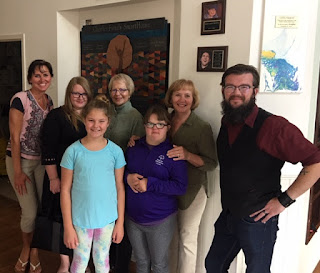Written at the top of this blog, from the very first day I started posting on it, was the purpose of its existence. This blog was meant to be a safe zone, where "discussions are open and honest, and new ideas and ways of looking at things are encouraged."
I have tried to live up to those words, which I view as aspirational. I want discussions that involve different ways of thinking because often those types of discussions result in the best outcomes. In fact, sometimes I would post statements that were deliberately provocative to see if a conversation would start. That didn’t always work, at least in terms of public comments (though I did frequently get people commenting to me privately about one thing or another I would post here).
I understand the reluctance of many to make public comments about our field, where the risk of being viewed as out of step with traditional ways of thinking can be daunting. However … as I step off of this platform and away from my position as CEO, I implore my blog readers: ask the tough questions, challenge the status quo, recognize contradictions and point them out, and be willing to poke the bear once in a while.
Our work involves supporting individuals with intellectual and developmental disabilities in becoming active, contributing members of their communities. That is a challenging task. At Imagine!, we served more than 4,100 people last year. That is 4,100 different personalities, with 4,100 different ways their issues manifest, and 4,100 different needs, goals and desires. That’s just in Boulder and Broomfield counties.
Now consider the number of people across that state and across the nation who have some form of an I/DD, and it seems to me that anyone can recognize that there is no “right” answer to how services should be funded and delivered. We should always be striving to do better, and the only way we can do that is by constantly questioning what we’re doing now.
I’m uncomfortable with any talk of my leaving a legacy at Imagine! or the I/DD world, because I hope that our organization and others will continue to find new and better ways of serving our fellow citizens with I/DD. I hope that any ideas I have will only serve as a starting point and will be supplanted by bigger, better, and bolder ideas of how to create a world of opportunity for all abilities.
I leave that challenge to you, dear reader, and I thank you for letting me play a small role in modeling what that might look like.
Have fun storming the castle! (link to the very first post on this blog, 9/10/09).
Then again, what do I know?
Wish List Wednesday
6 years ago










